
Die Fledermaus is an operetta composed by Johann Strauss II to a German libretto by Karl Haffner and Richard Genée, which premiered in 1874.

Maximilian Steiner was an Austrian actor and theater director and manager. He is known particularly for his leadership of Vienna's Theater an der Wien from 1869 to 1880, a period during which the theater reduced the importance of folk plays and was prominent in developing and promoting the fashion of a Viennese style of operetta.

Widerstehe doch der Sünde, BWV 54, is a church cantata by Johann Sebastian Bach. He composed the solo cantata for alto in Weimar between 1711 and 1714, and probably performed it on the seventh Sunday after Trinity, 15 July 1714. It is Bach's first extant church cantata for a solo voice.

Franz Lehár was an Austro-Hungarian composer. He is mainly known for his operettas, of which the most successful and best known is The Merry Widow.

The Chocolate Soldier is an operetta composed in 1908 by Oscar Straus based on George Bernard Shaw's 1894 play, Arms and the Man. The German language libretto is by Rudolf Bernauer and Leopold Jacobson. It premiered on 14 November 1908 at the Theater an der Wien.
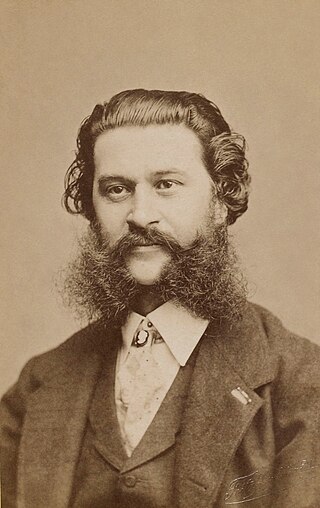
The Gypsy Baron is an operetta in three acts by Johann Strauss II which premiered at the Theater an der Wien on 24 October 1885. Its German libretto by Ignaz Schnitzer is based on the unpublished 1883 story Saffi by Mór Jókai. Jokai later published a novel A cigánybáró in 1885 using an expanded version of this same story.
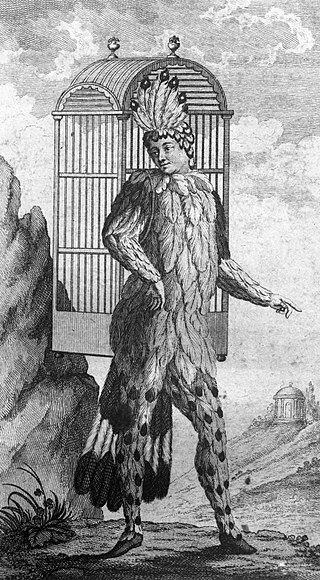
Emanuel Schikaneder was a German impresario, dramatist, actor, singer, and composer. He wrote the libretto of Wolfgang Amadeus Mozart's opera The Magic Flute and was the builder of the Theater an der Wien. Peter Branscombe called him "one of the most talented theatre men of his era". Aside from Mozart, he worked with Salieri, Haydn and Beethoven.
Der Vogelhändler is an operetta in three acts by Carl Zeller with a libretto by Moritz West and Ludwig Held based on Victor Varin's and de Biéville's Ce que deviennent les roses (1857). In 1891, Helen Tretbar translated the original German libretto into English and adapted it for performance in America as The Tyrolean.
Fritz Löhner-Beda, born Bedřich Löwy, was an Austrian librettist, lyricist and writer. Once nearly forgotten, many of his songs and tunes remain popular today. He was murdered in Auschwitz III Monowitz concentration camp.
Giuditta is an operatic musikalische Komödie in five scenes, with music by Franz Lehár and a German libretto, by Paul Knepler and Fritz Löhner-Beda. Scored for a large orchestra, it was Lehár's last and most ambitious work, written on a larger scale than his previous operettas. Of all his works it is the one which most approaches true opera, the resemblances between the story and that of Bizet's Carmen and its unhappy ending heightening the resonances. Perhaps the best known song in the work is the soprano aria "Meine Lippen, sie küssen so heiß", sung by Giuditta in the fourth scene. Another strong influence, especially for the North African setting, was the 1930 movie Morocco, starring Marlene Dietrich and Gary Cooper in very similar central roles, she being a singer-dancer, he being a soldier.

Edmund Samuel Eysler, was an Austrian composer.

Der Zarewitsch is an operetta in three acts by Franz Lehár. The German libretto by Heinz Reichert and Bela Jenbach is based on the play of the same name by Polish author Gabriela Zapolska. One of his later operettas, Lehár composed the work as a vehicle for Richard Tauber, the acclaimed Austrian tenor. The work received its first performance at the Deutsches Künstlertheater in Berlin on 16 February 1927, with Tauber and Rita Georg in the leading roles.

Das Spitzentuch der Königin is an operetta by Johann Strauss II. The libretto by Heinrich Bohrmann-Riegen and Richard Genée was based on the Spanish writer Cervantes.

Alexander Girardi was an Austrian actor and tenor singer in operettas.
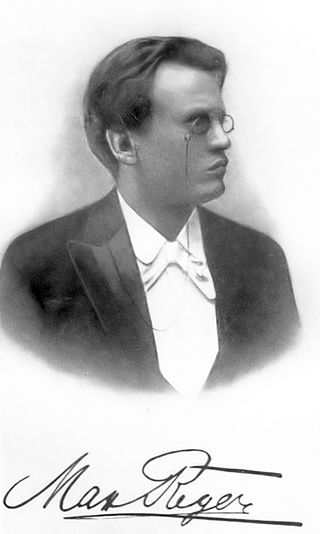
Ein' feste Burg ist unser Gott, Op. 27, is a chorale fantasia for organ by Max Reger. He composed it in 1898 on Luther's hymn "Ein feste Burg ist unser Gott". The full title is Phantasie über den Choral "Ein' feste Burg ist unser Gott".
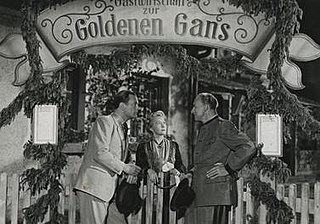
Kissing Is No Sin is a 1950 Austrian-German comedy film directed by Hubert Marischka and starring Curd Jürgens, Hans Olden and Hans Moser. The film takes its title from the waltz "Küssen ist keine Sünd" in Edmund Eysler's 1903 operetta Bruder Straubinger and features the song in its soundtrack.
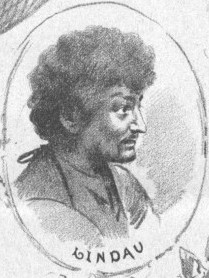
Karl Lindau was an Austrian actor and writer. He excelled in comic roles at the Theater an der Wien, and wrote several plays, librettos for operettas and songs.
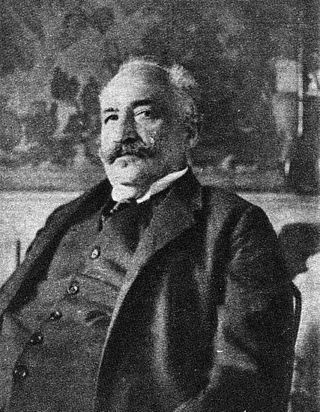
Ignaz Schnitzer was an Austrian famous writer, journalist, translator, librettist and newspaper founder of Hungarian origin.
Erik Wirl was a German operatic tenor and actor.
Christoph Graupner composed the Passion cantata Das Leiden Jesu von seinen Freunden, GWV 1122/41, in Darmstadt in 1741, for Oculi Sunday. It is based on a libretto by Johann Conrad Lichtenberg who wrote a cycle of reflective cantatas for the seven Sundays in Lent of that year, with this cantata focused on Jesus being betrayed and denied by his friends. The cantata is structured in seven movements, a Biblical dictum, a sequence of alternating recitatives and arias, and a closing chorale fantasia. It is scored for four voices, strings and continuo.














